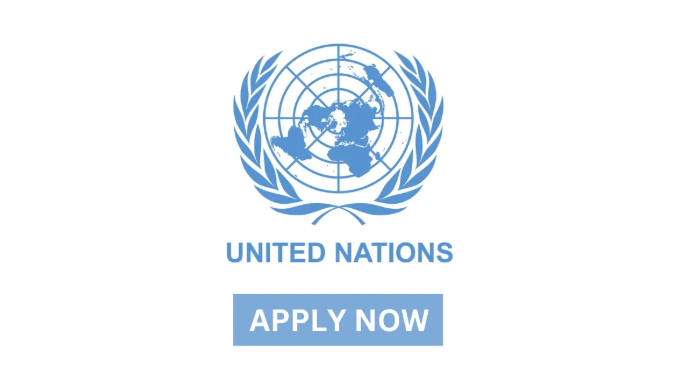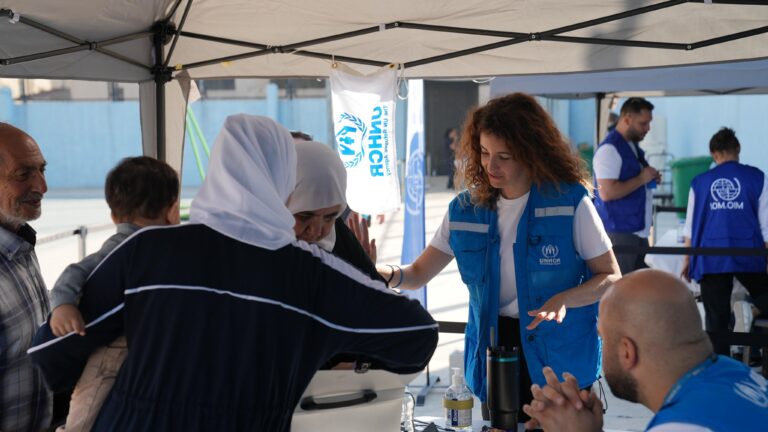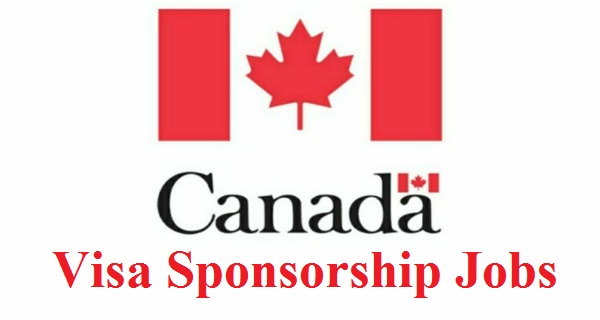United Nations Recruitment 2025/2026 | Application Guide
The United Nations Recruitment 2025/2026 cycle presents a golden opportunity for qualified candidates worldwide to join one of the most prestigious international institutions. The UN recruits’ staff, interns, consultants, volunteers, and young professionals across a wide array of fields — from development, peacekeeping, human rights, climate change, to finance, administration, health, and more. But the UN’s recruitment process is competitive and structured, requiring applicants to be well-informed, strategic, and diligent.
In this guide, we break down everything you need to know: recruitment streams, eligibility criteria, application steps, competencies, assessment methods, and insider tips — all geared toward helping you make your UN application for 2025/2026 as strong as possible.
Why Work for the United Nations?
Before diving into the logistics, it’s helpful to understand why so many seek to work at the UN:
- Global impact: Work on pressing global issues like peace, sustainable development, climate, human rights, health, and humanitarian crises.
- Multicultural environment: Engage with colleagues and stakeholders from various nations and backgrounds.
- Career development & mobility: Opportunities for lateral movement across UN agencies, field offices, and geographic locations.
- Benefits & stability: Competitive compensation, allowances, insurance, travel, and pension plans (for many staff roles).
- Prestige & networks: Being a UN professional can open doors in diplomacy, government, NGOs, academia, and beyond.
However, these perks come with intense competition. Application success depends heavily on how well you align with UN values, competencies, and recruitment rules.
Main Entry Points & Recruitment Streams for 2025/2026
Understanding the various entry paths into the UN system helps you target your strategy. Below are the most common routes:
UN Internships
Internships typically last 2–6 months and give students or recent graduates a chance to gain experience in UN offices. Most internships are unpaid, though some agencies provide stipends
Why do it? Internships help you build familiarity with UN culture, network with internal staff, and strengthen your CV for future UN applications.
Young Professionals Programme (YPP)
The YPP is the UN Secretariat’s flagship recruitment program for entry-level professionals. It involves a competitive exam and offers a path into P-level professional careers.
Eligibility criteria often include:
- Nationality from a participating country
- Upper age limit (commonly 32 years or younger) in the year of exam
- Advanced university degree
- Proficiency in English or French (sometimes another UN official language)
YPP roles are coveted, so preparation and timing are critical.
Junior Professional Officer (JPO) Programme
JPOs are assigned through partnerships between UN agencies and donor countries. Sponsors typically fund the JPO position, which places young professionals (often from donor countries) in UN roles (often at P1 or P2 levels) for a defined term.
Although the JPO is often seen as an alternative to the UN’s internal entry mechanisms, it can be a pathway to longer-term UN work.
Competitive Staff Recruitment (P-level, D-level)
These are direct recruitment roles advertised via UN Careers (Inspira) and agency-specific career portals, open to candidates with relevant experience.
UN Volunteers (UNV)
UNV placements are non-staff roles that allow professionals to contribute their expertise to UN and development projects. On deployment, volunteers may receive a living allowance.
Short-term Contracts & Consultancies
Many agencies frequently hire consultants and short-term contractors to support project-based work or specialized tasks. These roles are valuable for gaining experience in the UN system, often used as stepping stones to longer-term staff positions.
Available Vacancies at the United Nations Recruitment
Below are the available vacancies at the United Nations recruitment 2025/2026:
- Senior Human Rights Officer
- Director, Information Centre
- Scientific Affairs Officer
- Senior Political Affairs Officer
- Senior Interpreter, Russian
- Finance and Budget Officer
- Programme Management Officer
- Investment Officer
- Public Information Officer
- Principal Programme Management Officer
- Senior Programme Management Officer
- Secretary to the Commission
- Regional Subprogamme Coordinator – Biodiversity and Ecosystems
- Associate Human Resources Officer
- Chief of Environment and Development Policy Section
Key Eligibility Requirements & Competencies
Each vacancy will list required and preferred qualifications, but there are common baseline requirements across many UN roles:
Education & Credentials
- A university degree (Bachelor’s) is typically required for junior roles; many P-level positions prefer a Master’s or equivalent advanced degree.
- Specialized degrees (e.g. environmental studies, public health, international law, economics, engineering) may be required for technical roles.
- Certifications may help in specific fields (project management, IT, monitoring & evaluation, languages, etc.).
Work Experience
- The number of years of experience expected will depend on the level (P1, P2, P3, etc.).
- For P2, you might need 2–3 years of relevant experience; P3 could require 5+ years.
- Work in related sectors — NGOs, government, development, humanitarian — is often counted. However, as one contributor noted:
“Internships do not count as work experience in many UN jobs; what’s more valued is paid, relevant experience.”
Language & Communication Skills
- Proficiency in English or French is almost universally required.
- Fluency in a second UN language (Arabic, Spanish, Russian, Chinese) is a significant advantage.
- Strong writing, presentation, and interpersonal skills are essential.
Core Competencies
These are non-technical, behavioral competencies expected of UN personnel. Common ones include:
- Leadership & Vision
- Teamwork & Collaboration
- Planning & Organizing
- Accountability & Integrity
- Communication
- Achieving Results / Delivering Quality
- Adaptability & Flexibility
- Technical specialty skills (depending on the role)
Often, your application must include examples of when you demonstrated these competencies in past roles.
Security Clearance / Background Checks
Some roles may require security clearance, screening, or clearance from your home country. Be ready for checks on education, criminal record, and employment history.
Geographic & Mobility Requirements
- The UN often rotates staff between duty stations; mobility is expected and valued.
- Field assignments in remote or hardship areas may be part of the career path.
Non-payment & Fraud Risks
- Be aware that UN agencies do not charge fees at any stage of recruitment (application, training, visa, etc.). Any solicitation of payment is a likely fraud.
How to Prepare for the UN Recruitment 2025/2026 Cycle
Research UN Agencies & Career Paths
Familiarize yourself with UN system agencies (UNDP, UNICEF, WHO, UNHCR, UNEP, FAO, etc.), their mandates, and their recruitment portals.
Understand the nine UN career networks (for example: development, administration, legal, ICT, public information) to pick which fits your interests.
Build Relevant Experience & Skills
- Work with NGOs, government ministries, think tanks, or consultancies.
- Volunteer in development, humanitarian, or advocacy projects.
- Acquire technical skills relevant to your chosen sector (data analysis, GIS, project management, etc.).
- Learn or improve in UN languages (especially English, French, Spanish, Arabic, Chinese).
Networking & Mentorship
- Attend conferences, seminars, webinars, and forums relevant to UN goals (e.g. climate, SDGs, human rights).
- Connect with current or former UN staff on LinkedIn or alumni networks.
- Ask for informational interviews and mentorship to understand how they navigated their path.
Monitor Job Announcements & Create Alerts
- Use the UN Careers / Inspira portal to browse open positions.
- Subscribe to newsletters and job aggregators like UNjobs, UNjobnet, UNtalent, etc.
- Set alerts for roles, agencies, or locations of interest.
Prepare Supporting Documents
- UN Personal History Profile (PHP) / Application Template: Many roles require you to complete a profile in the UN system.
- Cover letters & motivational statements: Tailored to each role and highlighting competencies.
- Examples: For each competency listed, prepare stories (Situation, Task, Action, Result) demonstrating how you fulfilled them.
- CV / resume: Adapted to UN style (e.g. no photos, standard formatting, clear alignment with job requirements).
Practice Assessment Tests & Interviews
- Many roles include written tests, situational judgment tests, analytical assessments, technical tests, plus interviews.
- Search for sample or past UN assessment questions online to practice.
- For the YPP, the formal exam is a major hurdle.
Related Posts:
Step-by-Step Application Process (2025/2026)
While specific steps may vary among agencies, the general process follows this flow:
- Search & Select Vacancy: Use UN Careers / Inspira or agency portals to find suitable jobs. Use filters (level, location, agency).
- Read Job Description & Requirements Closely: Understand every required and desirable criterion, competencies, duties, and application instruction.
- Prepare Application (Profile, CV, Cover Letter, Examples): Fill out required forms (PHP, online questionnaire), upload documents, answer competency-based questions.
- Submit Before Deadline: Late or partial applications are typically rejected automatically.
- Screening & Shortlisting: HR screens applications against minimum qualifications and desirable attributes.
- Assessment / Tests / Examination: Depending on the post, you may be invited to take written tests, online exercises, technical assessments, or situational judgment tests.
- Interview (Panel / Competency-based): If you pass tests, you may be invited to a competency-based panel interview (behavioral, technical, scenario-based).
- Reference & Background Checks: Successful candidates’ references are verified; background, credentials, and employment history may be checked.
- Offer & Onboarding: If selected, you receive a formal offer with contract, benefits, and orientation.
- Probation / Trial Period: Many roles include a probation period during which performance is assessed.
Estimated Timeline:
- Application > Shortlisting: typically, 4–8 weeks
- Assessment & Interview: additional few weeks
- Final decision & onboarding: may take 2–3 months after that
Because of administrative and security checks, the entire process from application to mobilization can span 3–6 months (sometimes longer).
Common Challenges & How to Overcome Them
High Competition
Thousands apply for a few slots. You need to stand out.
Solution: tailor each application, highlight niche skills, and include strong examples of impact.
Non-counting of Internships as Professional Experience
As noted earlier, many UN hires do not count internships toward required years of experience.
Solution: also seek paid roles, consultancies, or NGO work.
Rejection Cycles & Delays
You may never hear back, or wait months.
Solution: Apply widely, diversify your applications (fields, locations, levels), and maintain resilience.
Fraudulent Job Offers
Fake UN recruitment scams exist. Remember, the UN never requests money from applicants at any stage.
Solution: Always cross-check vacancy announcements through official UN portals, verify email senders, never pay for job offers or interviews.
Geographic Constraints
You may be asked to relocate to field offices or hardship postings.
Solution: Indicate willingness to be mobile, and highlight adaptability in your application.
APPLY HERE
Tips to Strengthen Your UN 2025/2026 Application
- Focus on a niche or specialty. If your skills align with underrepresented areas (e.g. climate adaptation, digital data, AI for development), you may face less competition.
- Quantify impact. Use numbers, results, and metrics in your examples (e.g. “reduced costs by 20%,” “reached 10,000 beneficiaries”).
- Use STAR or CAR frameworks. (Situation, Task, Action, Result) when writing competency stories.
- Get feedback / peer review. Ask mentors or professionals to critique your application materials.
- Prepare for tests. Practice reasoning, analytical, language, and situational judgment tests.
- Stay consistent with values. Emphasize alignment with UN values (integrity, respect, impartiality, accountability).
- Monitor deadlines globally, UN jobs are posted across time zones; missing an early deadline can disqualify you.
- Backup plan. Consider regional or country-level UN agencies, NGOs, or consultancies as stepping stones.
Final Thoughts
The United Nations Recruitment 2025/2026 cycle is highly competitive, but with strategic preparation, clarity of purpose, and perseverance, your chances can significantly improve. Focus on aligning your experience with competencies, crafting compelling examples, preparing for assessments, and continuously building your skills and network.
Even if your first few applications don’t result in success, each attempt offers learning, feedback, and growth. Many UN professionals started with rejections, consultancies, or regional roles before entering the system. Persistence is key.






